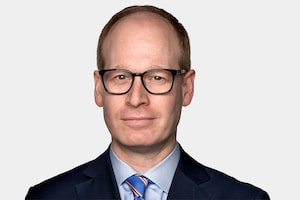B.C. Premier John Horgan during an interview on Nov. 15, 2022 in Ottawa. Mr. Horgan reflexively reached for ideas from Liberal World during a 2020 debate, writes Tony Keller.Dave Chan/The Globe and Mail
On Oct. 13, 2020, two weeks before a province-wide vote, British Columbia held a leaders’ debate. It featured three political parties – and one new weltanschauung.
The word means “a fundamental understanding of the universe and of humankind’s place within it held by a person, a culture, or a subculture.” The Germans have a word for everything.
As I wrote in my last column, this relatively new way of understanding and seeing – which I called DEI World – is how many Canadians now perceive the universe, and their place in it. But it clashes with liberalism, the long-dominant way of understanding the world, and measuring justice and fairness.
Because DEI stands for “diversity, equity and inclusion” – words expressing sentiments liberals can get behind – many people assume that DEI must be just more liberalism. It isn’t. It’s usually the opposite.
Which is why, if your brain resides in Liberal World, and you’ve had to attend corporate DEI sessions, you may have left feeling confused, or outright opposed. (You also knew it was taboo to express opposition. But that’s a whole other story.)
You’re not alone. In the 2020 debate, B.C.’s New Democratic Party premier was clearly confused when faced with a question straight from the weltanschauung of DEI World. He had good reason to be.
This was the question: “How have you personally reckoned with your own privilege and unconscious bias as a white political leader?”
In Liberal World, a similar question might have been phrased something like this: “Many voters are concerned about racial discrimination, in everything from housing to education to the job market. If elected, what will you do to address racism?”
But that’s not what was asked. The political leaders were not queried about their plans to govern. They were asked how they had “reckoned” with their “privilege” as white people, including their own alleged bias – unconscious bias, no less – against non-white voters.
It was like something out of a religious ceremony, in which people were invited to acknowledge the impossibility of transcending the stain of original sin, with the only possible response being, “yes, I am a sinner.”
But I live in Liberal World.
So did John Horgan, the then-premier and NDP leader. This is how he answered the question: “I grew up in southern Vancouver Island. I was a lacrosse player. I played with Indigenous friends; I played with South Asian friends. For me, I did not see colour. I felt that everyone around me was the same. And I brought that through my entire adult life, and I’ve instilled that in my children.”
It wasn’t the eloquence and precision of Martin Luther King Jr., but the words were in the ballpark. Mr. Horgan reflexively reached for ideas from Liberal World. And in Liberal World, the dream is that your friends and neighbours won’t be constantly sorting one another into racial categories. You’ll all be friends and fellow citizens, full stop. I’m white, you’re Black, whatever.
But that doesn’t square with the DEI World catechism. Race is not a thing to be overcome. It is the thing to centre everything around. In DEI World, a white person failing to confess to inherent racism scans as racism.
And so, as soon as the debate was over, Mr. Horgan apologized. He said it was “inappropriate to say I don’t see colour,” because “I don’t have a clue, as a white person, the challenges that people of colour face every day.” He acknowledged that, when it came to his “privilege,” he of course had “work to do.”
But his brain was mostly still in Liberal World, because he added: “I did grow up in poverty, I did grow up with Indigenous friends and South Asian friends, and for me it was normal to be poor and to be part of the crowd that nobody paid attention to.”
Liberal World is where most of our minds still live. And as liberals, nobody is against lower-case diversity, equity and inclusion. As for anti-racism, isn’t that a good thing too? Racism is bad; anti-racism must be the opposite. Right?
If you’d gone to some corporate non-discrimination training a decade or more ago, you might have been taught about practical things like fair hiring practices, how to avoid giving offence to colleagues and being sensitive in a culturally diverse workplace.
But today’s anti-racism training often isn’t at all like that. Which is how you end up with Laith Marouf. He worked for an organization that received federal funding to deliver anti-racism education, and whose contract was terminated after it came to light that he was posting antisemitic content online.
In Liberal World, claiming to be against racism, while discriminating on the basis of race, is not only wrong, it’s a philosophical contradiction. But DEI World’s anti-racism doesn’t work that way. It starts by putting groups of people into either the good racial box or the bad one, so that one can decide who is oppressed and oppressor, and who is entitled to what sort of treatment.
That’s how you end up with people posting things online that, in Liberal World, are clearly racist – and yet these same people, their minds in DEI World, sincerely believe themselves to be anti-racists.
 Tony Keller
Tony Keller